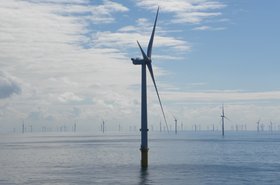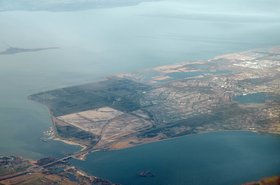Ireland's People Before Profit party this week introduced a new bill to amend the Planning and Development act prevent new data center developments in the country.
The Planning and Development (Climate Emergency Measures Act) 2021 would place an absolute ban on data centers, Liquid Natural Gas plants, and new fossil fuel-related infrastructure.
The party said the bill addresses ‘glaring gaps’ in the Government's own Climate Bill, due to pass through the Dáil this week.
“Real climate action can’t happen if we are simultaneously planning to have over half of any increase in renewable energy swallowed up by mega data centers by 2030,” said Bríd Smith TD. “We can’t reach our commitments under Paris and pretend that we can allow 100 plus data centers over the next decade. Other states and cities have also looked to impose restrictions on their growth, we must act now if we are serious about the climate emergency.”
The bill is currently at its first stage. A bill usually goes through five stages before being enacted and signed into law by the President.
Ireland’s status as a major data center hub in Europe is increasingly coming under scrutiny as the country puts greater focus on its energy use and climate goals.
The Government has set a target that 70 percent of Ireland’s electricity will come from renewable sources by 2030. In its Generation Capacity Statement 2020-2029, EirGrid projects that demand from data centers could account for 27 percent of all electricity demand in the country by 2029, up from 11 percent in 2020.
In a recent consultation, EirGrid said it might require new energy-demanding projects such as data centers to be built near to renewable energy sources in future, moving data center developments away from Dublin and towards the west coast.
Earlier this month, the Commission for Regulation of Utilities (CRU) told national grid manager EirGrid and ESB Networks to prioritize applications for data centers in regions where power supplies are not struggling. As a result, Eirgrid is concerned that this would mean it could not approve grid access for more than 30 data centers currently being proposed.
In March, Smith asked parliament to re-examine Government policy offering data centers special status and fast-tracked planning permission in the country, saying that its current policies are not compatible with its climate goals and targets.
“In the world the Minister seems to believe in, we have to continue to welcome data centers and see more investment in offshore and onshore renewable energy to fuel these very same centers,” Smith said in the Dáil this week.
“Thus, we enter a magical roundabout where the land is festooned with data centers empowered by fields of windmills that litter our lands and banks of windmills off our shores and around our coast. I am really not sure whether the Green Party believes in this vision but it is a fantasy. Data centers are not essential for the future of our economy or our society. They are not great investments and they are only essential as a component of an economy built and structured on the needs of the corporate sector.”
The provinces of Flevoland, Amsterdam, and Haarlemmermeer in the Netherlands have all either previously or currently enforced data center moratoriums amid concerns over their energy requirements and environmental impact. Singapore has had an embargo on new data center developments since 2019.





